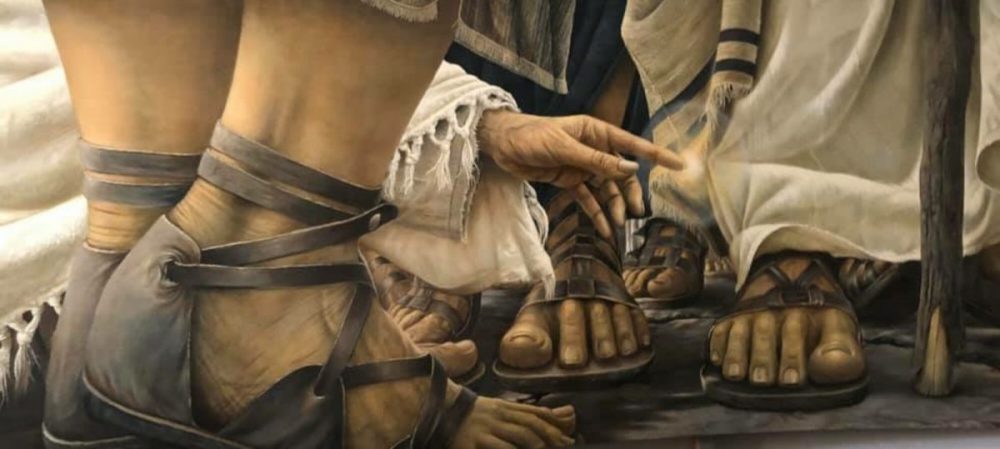In my previous lessons on the Sabbath, I discussed the Sabbath as a matter of Lordship, identity, and freedom. Today, I want to show how this works out from Scripture and my personal life.
The first example is in Exodus 14. In this passage, Israel has escaped the bondage of Egypt and has traveled to the Red Sea. Pharaoh, once again, changes his mind about letting Israel go and pursues them to recapture them. Now, Israel has the Red Sea in front of them and Pharaoh’s army behind them. They have no place to go and no obvious way of surviving this situation, so out of fear they complain to Moses (Ex. 14:11-12). Moses tells the Israelites, “stand firm and you will see the deliverance the LORD will bring you today.” In other words, Moses tells them not to worry or fear but to rest in the Lord because He will provide a way out. In this example, Israel was not to do anything. They just had to trust God to provide an answer to their problem. He did this by miraculously parting the Red Sea.
We see this same scenario time and again with Israel in the wilderness. They face a difficult situation or problem, and instead of trusting God to meet their need, they react with fear, worry, or complaining. And, despite Israel’s lack of trust, God miraculously provides an answer to the problem (see Ex. 15:23-26; 16:1-30; 17:1-7). The lesson God wanted to teach Israel through all this was not to worry or try to solve the problem themselves. Instead, He wanted to teach them to rest in Him: to trust Him for their survival.
The next example is found in Joshua 5 and 6. Israel has crossed the Jordan River and is preparing to possess the land of Canaan. Joshua 5:13-15 tells us that Joshua had gone off by himself and was near Jericho, probably to look over the city to develop a strategy of how to take the city. When he looked up, he saw a man with a sword in his hand. This man told Joshua that he was the captain of the Lord’s army and proceeded to tell Joshua how to defeat the city of Jericho (Josh. 6:1-5).
In this situation, God asked Joshua not to try and work out a solution on his own. Instead, he was to rest in God and obey His instructions, even though it may not have made sense as a military strategy. Of course, we know that, in the end, God performed a miracle, and Jericho fell to the Israelites. Here, Israel was not to stand by while God worked. Instead they were asked to participate in the solution. God wanted them to trust Him enough to obey what He asked them to do, even if it didn’t make sense. The lesson was that their success depended on God and not on their performance.
Personally, I was a lot like Israel for most of my ministry. I realize now that I mainly ministered out of insecurity. In my heart and mind, I knew that I needed to trust God, but in practice, I still felt that the church’s growth depended on my performance. I thought that I needed to perform well to show everyone I was competent and could be considered a successful pastor. My identity was connected so much to my performance that if I did not produce the results that I thought were required, I felt like a failure.
Therefore, whatever obstacle, problem, or challenge I faced, my first response was, “what can I do to solve this?” Yes, I would pray over the situation, but it was usually a prayer asking God to bless what I had decided to do. I was carrying the burden of the church’s growth on my shoulders, and I was constantly worried, afraid of failure, discouraged, and worn out trying to find solutions.
Then, one day while reading Matthew 16, I came across the familiar verse where Jesus says, “I will build my church.” Suddenly, it hit me! It is Jesus’ church, not mine, and He will build it. So, if He is building it, He already has the plans, resources, and everything else He needs to complete the task. All I need to do is be like Joshua—listen to God’s direction and do what He tells me to do. As a result, I don’t need to worry or fear because the results lie with God and not with me. That burden has been lifted from me, and I can rest in Him (see Matt. 11:28-30).
One final thought. In Exodus 16:4, God says He is instituting the Sabbath to test the people to see if they will obey His instructions. I believe we face that same test every time we encounter difficult situations in life. The test is to see if we will fear for our survival, worry about how well we are performing, or try to solve the problem ourselves. Or if we will put the problem in God’s hands and trust Him to take care of it. Also, remember that, as with Israel, the difficult situations will provide opportunities for God to perform miracles if we will trust and obey Him.
So, as I stated in the previous post, Sabbath is not limited to just one day. Instead, it is the habit of daily developing a relationship with God, understanding how valuable we are to Him, and fully trusting Him to take care of us in all situations. This daily habit leads us to a lifestyle of complete rest in God, free from worry, fear, and performance.
Lord, help us all to learn how to fully rest in You every day of our lives.
